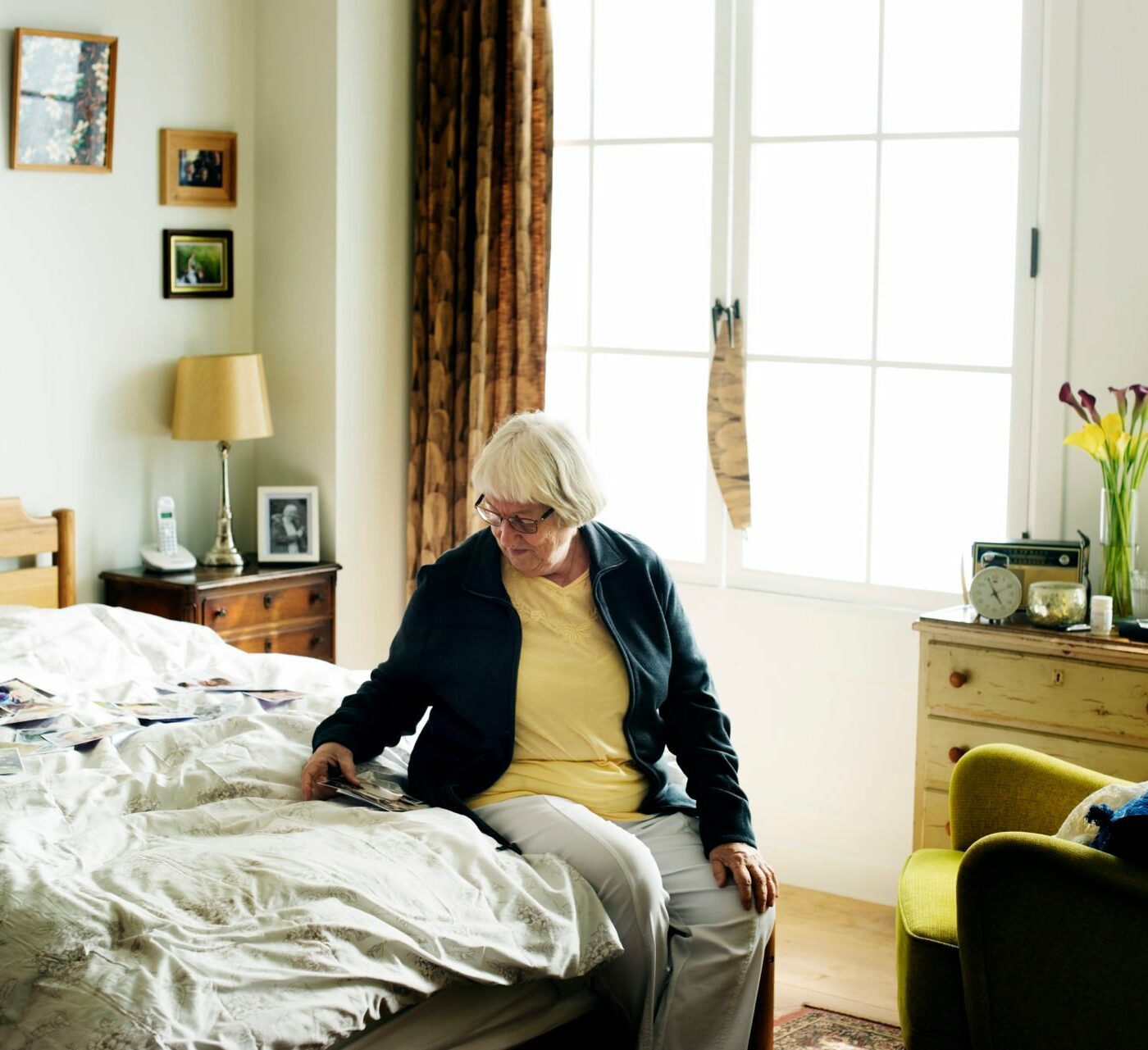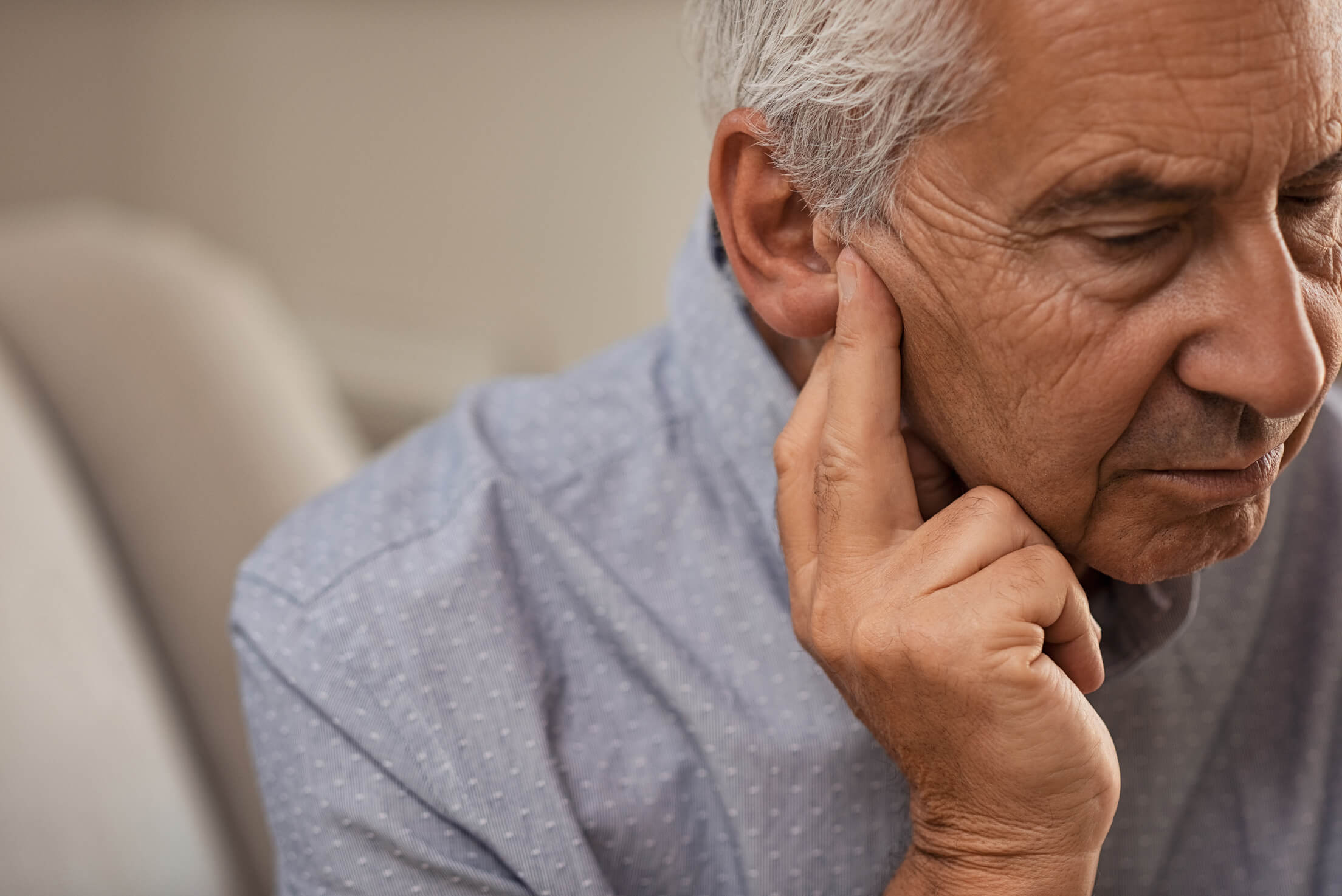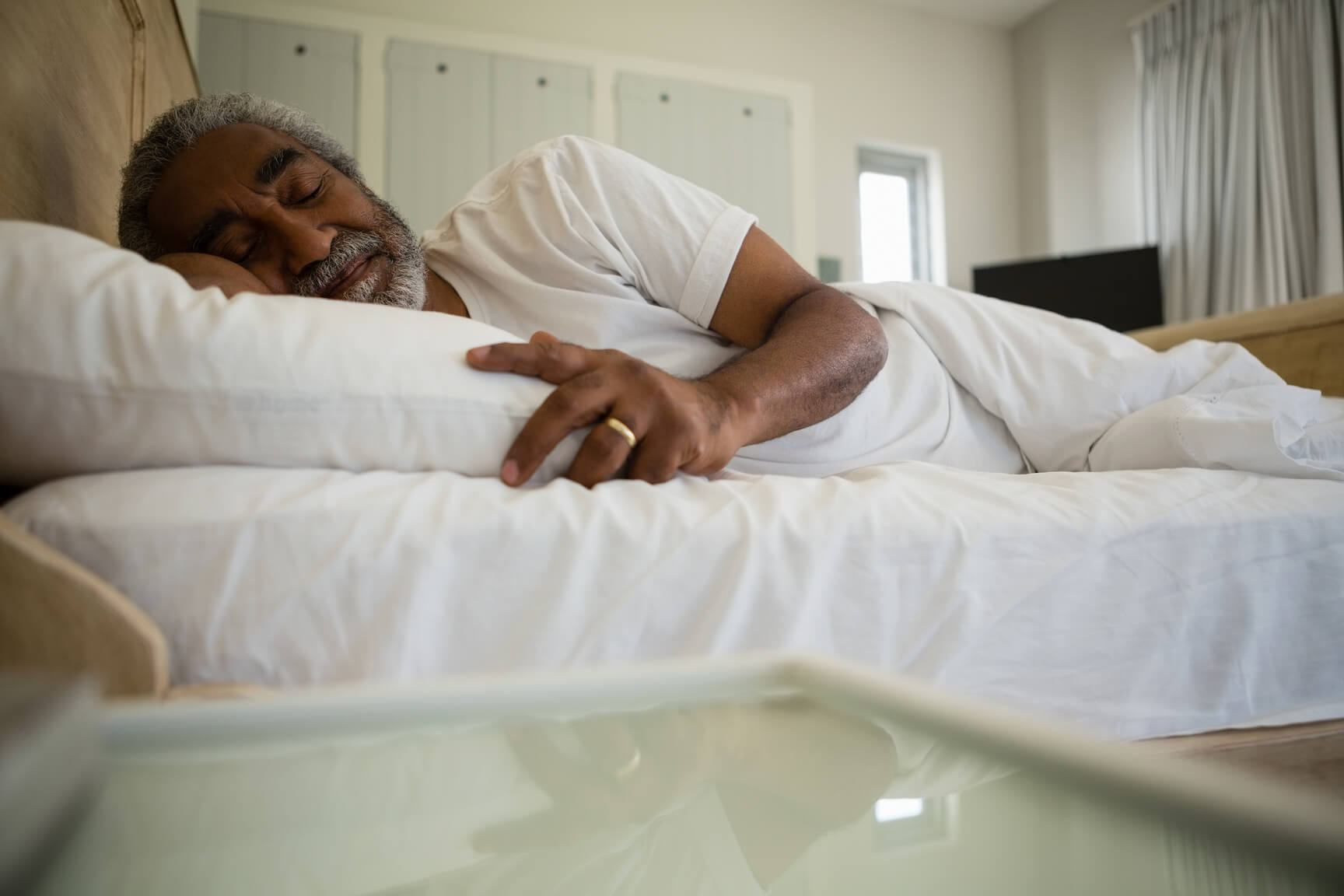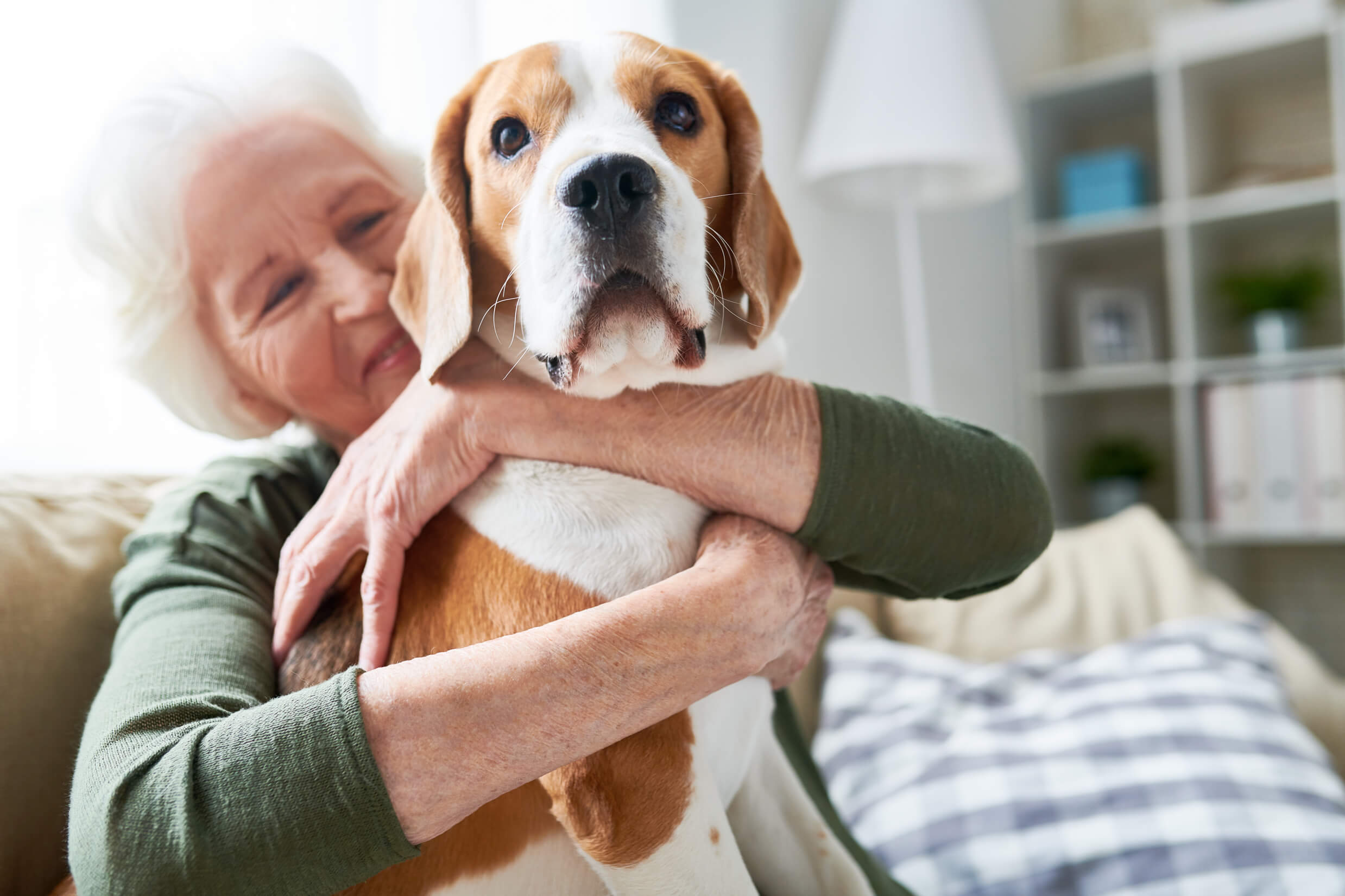Spotting the symptoms of loneliness in old age
Tags
Articles
Let’s talk loneliness. It’s one of the biggest health crises facing older people today, and according to Age UK, over a million elderly people go for a month or more without speaking to a friend or family member.
However, elderly loneliness can affect those with a network of support around them too. Experiencing an illness, or the ongoing impact of the pandemic can lead to people becoming isolated from the world around them.
Loneliness doesn’t just make people feel sad, it can have a lasting impact on mental health, causing negative thoughts, low self-esteem and even depression. It can lead to physical health problems too, and has been linked to high blood pressure, heart problems and stroke.
Elderly loneliness statistics
Nearly 40% of over 70s didn’t leave their home at any time during lockdown.
One in five spoke to friends and family no more than once a fortnight.
28% of the older people surveyed didn’t feel confident using technology to communicate with their loved ones.
What is loneliness?
We can all feel lonely from time to time, and everyone’s experience will be different, but equally valid.
Loneliness happens when our personal need to connect deeply with others isn’t met. This is why some people live quite happily alone, while others struggle.
Some elderly people may appear to have an active social life, spending time with community groups, friends and family. However, if they don’t feel understood or valued by the people around them, they can still experience loneliness.
What causes feelings of loneliness?
Many things can cause feelings of loneliness, and sometimes there may not be an obvious reason for someone to feel lonely. However, there are a number of factors that can put an elderly person at greater risk.
Weiss’ Loneliness Theory
Sociologist Robert S. Weiss found six types of relationship that, if missing from our lives, can cause us to feel alone:
Attachment – relationships that help us feel safe
Social integration – relationships with people who share our interests and concerns
Nurturance – relationships where we feel responsible for the wellbeing of another
Reassurance of worth – relationships where our skills and knowledge are appreciated
Sense of reliable alliance – relationships where we can count on the support of others
Guidance – relationships that provide trustworthy advice in stressful situations
Chronic illness and loneliness
The pain, discomfort, and sometimes embarrassment of a chronic illness can lead people to feel unable to take part in social activities or spend time with others.
Some may also worry that their family and friends will only see their condition, rather than the person they are.
Loneliness can have a big impact on physical health. It can change how the immune system functions, and can be a risk factor for heart disease. Over time, it could even make the symptoms of a chronic illness worse, or slow down recovery time.
The impact of Loneliness on the immune system
It’s in our nature to be social, because, when we’re surrounded by others we feel safe and protected.
Without the protection of others, our immune system, as well as our body’s stress response, stay on high alert, ready to help us face difficult or uncomfortable situations.
Being in this constant state of alert takes its toll on our immune system. Over time it becomes weaker, and can cause excess inflammation in the body.
Grief and loneliness
By the time someone is in their 80s or 90s they’re very likely to have experienced the loss of a friend, family member, spouse, or a much loved pet.
Even with family around them, an older person can still feel incredibly alone when they’ve lost people their own age, who they’ve shared years of experiences and memories with.
Grief is closely related to stress, and can weaken how the immune system functions, leaving an older person more vulnerable to illness.
Hearing loss and loneliness
Hearing loss can make it challenging to be social, it becomes harder to hold a conversation with friends, or even pop into a shop. Over time this can impact a person’s confidence.
The stress of not being able to communicate with others can cause people to withdraw and spend more time alone.

Loneliness and social isolation
Mobility problems, a lack of money, or the lockdowns as a result of the COVID-19 pandemic can put someone at an increased risk of chronic loneliness by isolating them from their community.
Often, when the elderly feel isolated it can feel like their situation will never change, which can lead to negative thoughts, low self-esteem and depression, all of which are associated factors for dementia causing diseases.
Are men or women lonelier?
According to the Office of National Statistics (ONS), older women are more likely to voice their feelings of loneliness than men.
Older men were found to feel more socially isolated than women, but less lonely.
Age UK believes this points to a larger problem of men feeling unable to talk about loneliness, believing they should be independent, and that seeking help is a sign of weakness.
Clubs and social groups are also more likely to be attended and organised by women, which could be off putting to older men.
Signs of loneliness in the elderly
Change in appetite
If a loved one starts to eat less, or becomes uninterested in food it could be a sign of loneliness.
Overeating can indicate loneliness too, as the feelings of emptiness when alone can sometimes be misinterpreted as hunger.
Anger
Loneliness can sometimes emerge as anger, particularly in older people who may feel embarrassed about feeling alone, but are too proud to say anything to their loved ones.
Anger can also stem from people feeling misunderstood, left out of decisions or unheard, which are all contributing factors to feeling lonely.
Anger doesn’t always present itself as yelling or being argumentative, a loved one could become quiet, disengaged or generally negative.
Sleep
According to a study, feeling lonely may disrupt sleep patterns. Loneliness can lead to older people experiencing shorter periods of quality sleep, and insomnia symptoms such as finding it hard to fall asleep, or feeling tired and irritable more frequently.
Sometimes loved ones who feel socially isolated will want to spend more time in bed, while not necessarily sleeping.

Increased buying habits
It’s been found that lonely adults may tend to shop more and often spend money on things they don’t need. A change in shopping habits could be a sign your loved one is lacking social connection, and are looking for something to do.
Taking more hot baths
People often associate physical warmth with comfort, which is why many elderly people will use warmth as a substitute for social comfort when they’re feeling lonely.
Taking more hot baths and showers, or keeping the heating on in warmer months could be a sign of loneliness.
Increase in internet use
While we may think of the internet as a great way for our more tech-savvy loved ones to stay connected, when it becomes the only way for an older person to find connection with others, it can indicate loneliness.
An Australian study found that older adults who felt isolated and used the internet as a way to connect with new people, such as through online social groups or Facebook, had a higher level of emotional loneliness.
How to help someone who’s lonely
Take it one conversation at a time
Talking about loneliness is hard. An older person who had a wide circle of friends throughout their life, had a fulfilling career, or was the head of the family, may find it embarrassing or painful to feel lonely as they get older.
Being there to listen when they’re ready to talk, or offering reassurance that things can get better may seem like small steps, but can make a world of difference to how a loved one feels.
The UCLA Loneliness test
If your loved one does feel comfortable talking to you about how they’re feeling, the University of California has developed a test, which could help you understand the best ways to support them.
Pets can help with loneliness
The companionship of pets provides older people with the opportunity to feel responsible for the wellbeing of another living thing.
Research by The Blue Cross highlights that spending time with animals can also reduce blood pressure and ease emotional pain. The charity regularly advocates for care homes to have a pet policy in place, so that older people can bring their pets with them into care.
If it’s not possible for your loved one to care for a pet full time, there are a number of organisations around the UK that specialise in pet therapy sessions, such as Petpals, Wag and Company, and Canine Concern.

CBT techniques for loneliness
Cognitive behaviour therapy (CBT) is widely used by the NHS to help reduce feelings of anxiety and depression by identifying and rationalising negative thoughts.
Research suggests simple CBT exercises, such as writing down thoughts and feelings, as well as breathing and relaxation techniques could help people in later life who are experiencing loneliness.
CBT won’t be right for everyone, so it’s important to seek the support and advice of a healthcare professional.
Support and social groups
As loneliness is such a widespread problem, there are groups up and down the UK dedicated to creating safe and engaging spaces for elderly people to connect with one another.
From coffee mornings, to craft networks, to church groups, local councils and organisations like Age UK can be great resources for finding a group that your loved one will enjoy.
Befriending services can also be useful for combating loneliness, especially if your loved one feels more comfortable talking to someone neutral, outside of the family. These services match them with a ‘call companion’ for weekly telephone chats.
Loneliness charities and support
The following organisations can provide resources and support to help a loved one affected by loneliness.
Companionship and befriending services:
This article is for informational purposes only and not to be taken as medical advice. For medical advice, always consult your GP.
Read our latest blogs
Browse the latest blogs and tips on living well in later life.
